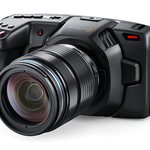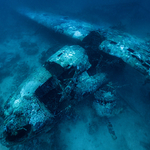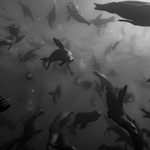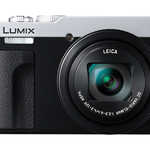![]()
Diving Lolobau Island and the Fathers Reefs
By Don Silcock
In a roughly rectangular area, about one-third the size of Tasmania, the north coast of New Britain hosts three of the best diving locations in all of Papua New Guinea.
The most well-known of those three is incredible Kimbe Bay, while to the north-west of Kimbe are the wonderful Witu Islands and last, but not least, to the north-east is Lolobau Island and the Fathers Reefs.
Over the last 12 months or so, I have been fortunate to dive all three locations, and the purpose of this article is to document my experiences at Lolobau and the Fathers.
![]()
The Common Denominator…
New Britain is the largest of PNG’s many islands, and it sits about 5 degrees south of the Equator, astride the south-western leg of the Pacific Ring of Fire – where the world’s tectonic plates collide.
Such collisions result in “subductions,” where one plate is forced under the other, producing volcanoes, mountain ranges, and earthquakes in the process…
![]()
Kimbe Bay itself is bounded by some seven significant volcanoes plus the huge Dakataua caldera at the northern tip of the Willaumez Peninsula. At the same time, the epicenter of the Witu Islands is the huge caldera on Garove Island.
![]()
And Lolobau has dominated by the large volcano on the western rim of the 6km wide caldera that forms the island. On the coast of New Britain, the massive 2300m high Ulawun (Father) volcano is in the distance.
![]()
You probably get the picture… there is some pretty amazing scenery along the north coast, which is visually spectacular and a constant reminder of the powerful ancient forces deep beneath in the earth’s core.
![]()
Underwater
Beneath the water, at Lolobau and the Fathers, the scenery is equally impressive, with the diving focused on the seamounts and coral topped pinnacles that rise from the depths of the Bismarck Sea.
The area is physically located at the north-eastern tip of greater Kimbe Bay and, like the Witu Islands, is directly exposed to the nutrient-rich currents that circulate the Bismarck Sea.
This means those seamounts and pinnacles are very well-nourished and able to sustain their own eco-systems, all of which means some really excellent diving!
There are numerous sites to pick from in the overall area, and some 14-16 of them are dived regularly – here are some of my favorites from the trip.
![]()
The Archway: Located at the western edge of the Fathers Reefs, this is for me the signature dive of the area… It consists of a large bommie that rises up from a deep shelf in 50m+, with its top in 24m – so it is a potentially deep dive.
There is a permanent mooring on a nearby shallow reef, and the bommie is accessed via a rope that leads down to it so that you don’t get caught in the current and can maximize your time on the site.
![]()
The highlights of the Archway are the large oval window in the bommie and the arrays of beautiful sponges, soft corals, and red sea-whips that add such dramatic color to the site.
![]()
All told, the Archway is an adventurous and exciting dive that will stay in your memory for a long time to come!
![]()
Elaine’s Reef: Also located at the western edge of the Fathers and close to the Archway, this site is a joy to dive and offers wide-angle photographers a great selection of subject matter!
![]()
With superb soft corals and sponges, rich patches of vibrant red sea-whips, and a huge resident school of barracuda to choose from…
![]()
The site is basically a ridge between two reefs, with the permanent mooring on Elaine’s Reef’s top in just 6m. From the reef flat, the ridge drops down to about 24m, and on the way down, there are numerous patches of intense marine growth.
![]()
Along the ridge itself and either side of it are more examples of just how rich those Bismarck Sea currents really are. While in the blue above the ridge, the barracuda perform their synchronized swimming routine to their brief visitors’ delight!
![]()
Norman’s: This site is a quite spectacular large, roughly round, seamount that rises up almost vertically from the deep seabed some 40m+ below.
The top of the seamount is a flat plateau of about 9m that is richly covered in marine growth and hosts a large population of small to medium size creatures like nudis, cuttlefish, and moray eels, plus lots of small reef fish.
![]()
During the day, Norman’s is a great wide-angle dive with schooling jacks and barracuda in the blue and lots of sponges, corals, and sea-whips around the sides of the seamount.
But at night, it really comes alive as all smaller stuff emerges to feed!
![]()
Leslie’s: Located close to Norman’s along the fathers Reefs’ northern edge is this site, which is another seamount rising up from the depths.
The seamount’s main part is a smallish and roughly circular pinnacle that comes up to 8m below the surface, which is where the permanent mooring is situated.
![]()
Schooling barracudas are a permanent fixture at Leslie’s, and the site is known for regular visits by large silvertip sharks, but they failed to show up the days we dived it – such is life in the ocean.
![]()
One side of the pinnacle is a ridge that starts at around 24m and runs down to about 35m, which is host to lots of colorful soft corals and barrel sponges. It is also the area where the silvertips like to hang out when they show up!
So, we just had to make do with some excellent encounters with the very photogenic schools of barracuda and jacks…
![]()
How to Dive Kimbe Bay
There is only one option to dive Kimbe Bay, but it is a great one – Walindi Plantation Resort was where diving started in the bay and offers day-diving to all the main sites in the bay.
You can read more about the bay, the sites, and why the diving is so good on this link to my site.
![]()
How to Dive Lolobau Island and the Fathers
Both MV Oceania and MV Febrina dive the area regularly, but at different times and are the only boats to do so.
Both boats offer exceptional but different experiences. My trip was on the Oceania, which Dan Johnson skippered, who organized and ran the complete refurbishment of Oceania before it went into service in 2019.
![]()
Dan knows the north coast of New Britain very well, having run the diving at Walindi for 5 years with his wife Cat.
![]()
Febrina is owned and skippered by Alan Raabe, who pioneered offshore diving around New Britain and knows all the sites better than anybody.
Basically, you cannot go wrong with either boat – simple as that…
![]()
How to Dive the Witu Islands
Both Oceania and Febrina also dive the Witus regularly, but again at different times.
You can read more about the Witu Islands, the sites, and why the diving is so good there on this link to my site.
![]()
In Conclusion
Diving Lolobau Island and the Fathers Reefs has very much been on my bucket list for a few years, and it was a real pleasure to finally get there.
Did they meet my expectations? Absolutely – the diving was excellent, and the above water scenery was spectacular!
So… having dived extensively in Kimbe Bay and completed trips to both the Witu Islands and the Fathers in less than 12 months, I am sure you are probably curious as to which area I prefer?
This is a really tough question as all three areas offer great experiences, and I cannot really say one is better than the other. What I would say, though, is this:
Kimbe Bay is a great all-around experience, and if you prefer to sleep on dry-land, it makes the most sense, and you can do up to three dives a day in the bay and be back at Walindi Resort in time for a sundowner and dinner.
![]()
Both the Witus and the Fathers have exceptional “open water” seamounts and pinnacles that are incredibly hard to beat, thriving as they are on those nutrient-rich Bismarck Sea currents. The only way to dive those sites is by liveaboard…
All three locations have unbelievably scenic locations that will blow your socks off, so basically, you cannot go wrong with anyone of them. If you are looking for the perfect New Britain trip, then I would suggest a few days in Kimbe Bay at Walindi and then either (or both) the Fathers or the Witus.
I doubt you would ever be able to make that perfect trip better or cheaper than in the next 12 months as Papua New Guinea gets back on its feet after Covid 19!
Don Silcock
In more normal times, Don is based in Bali, and his website has extensive location guides, articles, and images on some of the world’s best diving locations and underwater experiences.
Tagged: articles, don silcock, png
Read More Wetpixel.com




